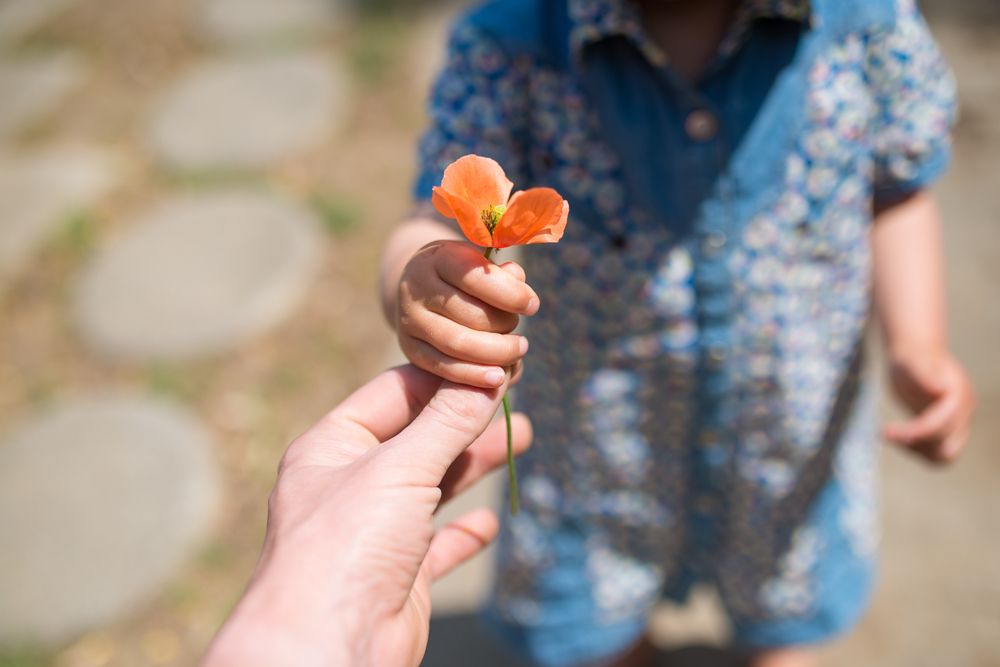“You’re stupid.”
“Tell your brother you’re sorry.”
“I’m sorry you’re stupid.”
It’s a classic; in fact, I think I cut it out of a Family Circus comic once. The exchange itself might elicit a head-on-desk reaction, but the sentiment holds some truth: “saying sorry” is often insincere.
In my day-to-day life, at school pick-up, at the playground and pool, I hear parents telling their children to “say sorry” on the daily. Does saying it teach kids not to hurt other peoples’ feelings, does it make parents look better, or give them peace of mind? Here’s what I think.
Last month the internet blew up for a moment when a woman quipped that she was the meanest mom ever. Granted, her fame comes from being a reality TV star and not from this comment alone, the response to this particular situation was still overwhelming. The situation: after her three children failed to thank the person who served them at Dairy Queen, she threw out all of their ice-cream. This, she says, was to teach them a lesson. I’ve made an erratic decision or two in my day, in my parenting life and otherwise, but I have my doubts as to what the kids learned from this. They learned, I would suspect, that their mother can make hasty decisions. They experienced public humiliation from her telling of the story. And they learned that they need to be polite in order to keep their mother happy and their treats in-hand.
But did they learn to want to be polite? This is the clincher for me. Kids regularly learn “the magic words,” and perhaps even that these words make people nicer to them. But I’m not sure that what they’re learning is kindness or that reciting the words makes them want to treat people well. So often “say sorry” or “say thank you” is met with the words thrown out reluctantly.
In my home, I’d rather my kid say “I really like the gift you got me,” “I wish I hadn’t done that,” “I didn’t mean to hurt your feelings.” To me, the magic words are easy outs. They teach kids what to do, but not why. Of course, I know these common courtesies are widely accepted and that, as such, they have come to be expected. Which is to say: I know many parents will disagree with my not pushing my daughter towards pleases and thank you’s. In the event that I get an empty “sorry,” I will often ask my daughter what she is sorry for, or if she knows why I’m upset. I find prompting conversation more meaningful and productive than prompting particular words.
Treating people well is something I’m committed to teaching my daughter, but for me, that’s not about manners per se.

Leave a Reply